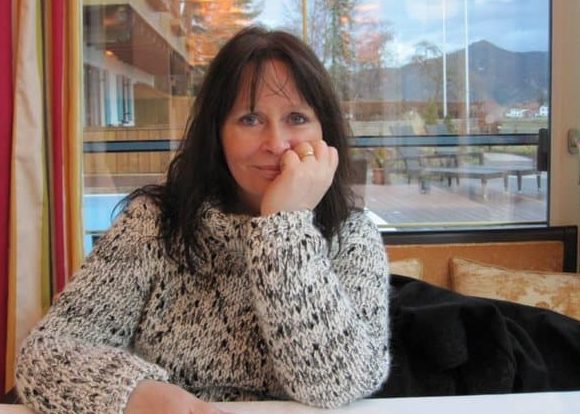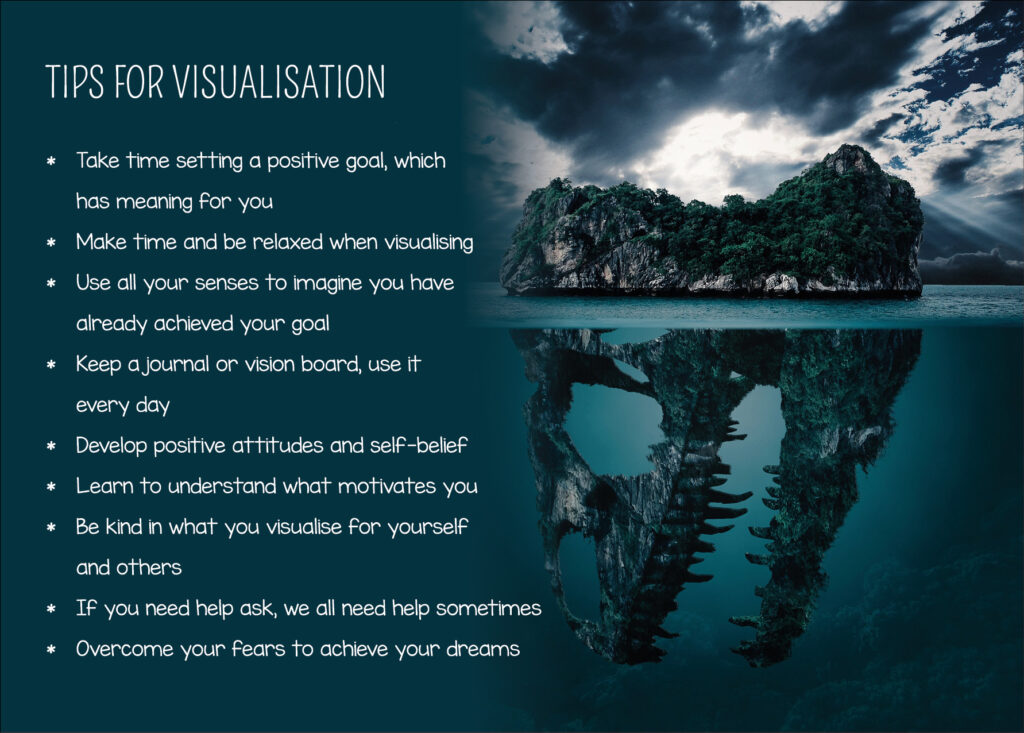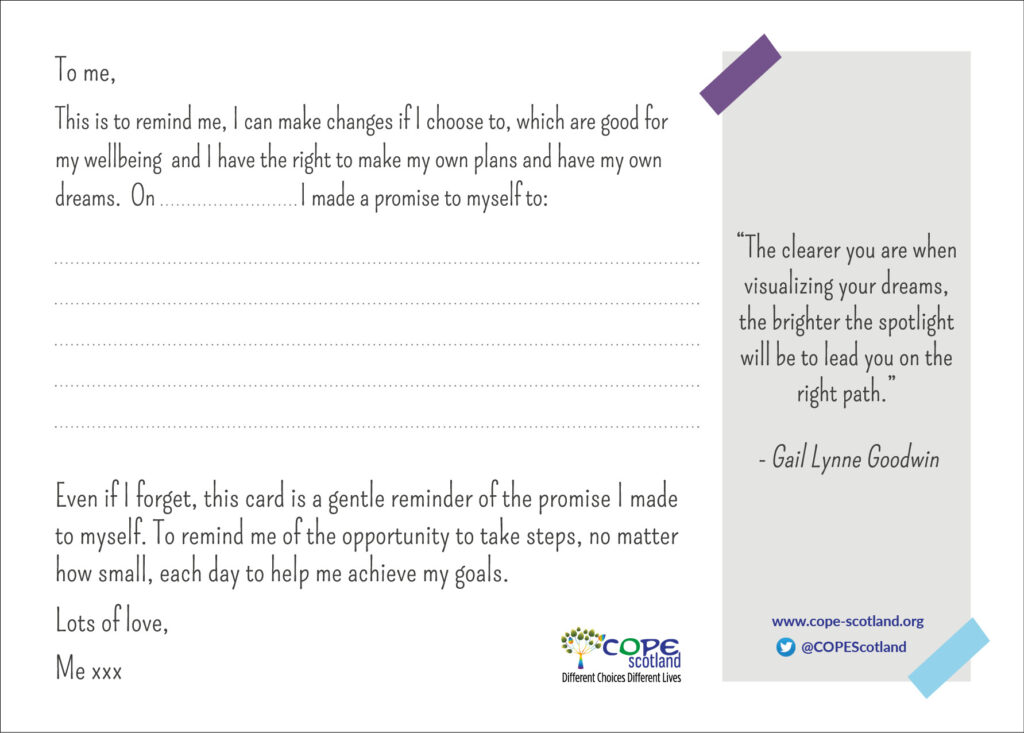Today COPE Scotland turns 30 years old. To celebrate, QNIS chatted to their CEO, and QNIS Honorary Fellow, Hilda Campbell about where she gets her motivation and her surprise spring anthem.
You’re a busy woman, how do you start your day?
Tripping over the cats! Making a fuss of them. Clean teeth, a glass of water and a handful of blueberries, walnuts and honey to fuel my morning exercises. I do arm bends, knee kicks and a wiggle of the hips while the cats look on curiously. When it snowed, I even went outside to practice my patented Hilda Tai Chi Qigong – a routine made up mostly of my own moves.
Where does your person-centredness come from?
I’ve always had an eye for justice, fairness and person-centredness. When my gran died I remember clearly the day that we picked up her belongings. Everything was jumbled in a clear plastic bin bag. Chocolate gingers (her favourites and a gift from me) were spilling out and mingling with her dirty nighty. What feels like a small thing can have a big impact.
What encouraged you to set up COPE Scotland?
Things are different now, but at the time I couldn’t be the nurse I wanted to be in a clinical environment. There was a focus on observing people, keeping them ‘warm and well-fed with regular bowel movements’ but I knew mental wellbeing was just as important to fully recover. People are more than their condition. That was why COPE was developed, to grow an idea, not an empire.
And what did you want to achieve?
A reduction in mental health stigma and improved access to community services. I surveyed people who thought those with mental health issues should be locked up! I always wanted to hear the experience of experts, to work with them to make changes they could see were necessary.
You are a nurse and a social entrepreneur, what would you say to other nurses who want to break out and follow their heart?
Breaking out just means acting at the right time. Promoting a great idea sometimes requires a platform you don’t have yet. Recognising that it may be years before an idea becomes reality is a hard but important lesson. I would encourage them to have stamina, not to give up when the road to change gets rocky. It often is!

Any career defining moments?
I was one of the speakers at a Health and Social Care Alliance event on Deep End work having been involved in the study. A friendly, bubbly woman with short blonde hair approached me afterwards. Little did I know that this woman was putting me forward as a case study for the RCN’s Nursing on the Edge series. That woman was Clare Cable! I remember the piece was called ‘Rebel with a Cause’.
How many hours do you work in a day? Be honest!
You don’t want to know!
Honestly, the only things that truly feel like work are dealing with red tape and bureaucracy. I’ll admit that can be challenging. But the work I do around seeing connections between issues and creating resources? It energises me!
What are you working on next?
We have a two-year plan to move gradually into the public health arena. No matter how excellent a one to one service is, it can’t reach everyone. We want to set our sights on resilience and prevention work within the wider population.
As an organisation we have always been driven by need. In our early days, few people were providing wellbeing resources or talking therapies but now there are so many new services plus peer support groups that communities are setting up themselves. There is always competition for funding and we don’t want to compete with the very communities we have served. It’s their turn to carry this baton forward.
Will COPE change after COVID?
COVID has created long waiting lists for professional services and once they reopen it will be hard for them to manage. At COPE we want to reduce the strain on these services.
Things will change, they always do. How we view mental health services in the 21st century will require a new approach to the micro and macro issues and we are energised to be a part of that.
How important is co-production in your work?
When I first took the job at Drumchapel I had a funding cheque and a note to get on with it. That feels daunting until you realise you have allies. I’ve worked with local volunteers, health professionals and members of the community. Co-production creates more effective interventions and promotes self-management.
Where do you get your motivation?
Motivation is always easy when something matters. I’m encouraged to keep going by the fire in my belly that wants to make a difference and create change.


How does it feel to be awarded a QNIS Honorary Fellowship?
I don’t handle the limelight well and came up with every excuse not to collect my award in person but I’m glad I did. I’m incredibly touched to be grouped with so many wonderful people. The QNIS, and in particular the Queen’s Nurse programme, creates authentic connections for community nurses.
How do you inspire people?
I have always been inspired by those who speak from their own experience and try to do the same. I meet passionate, fiery people and I totally get it but I know that sometimes the most useful thing is to help them temper that fire for positive action. A professional is made when the manual runs out of pages and you have to make your own call.
Jigsaws feature in your work; do you enjoy a classic jigsaw puzzle?
[She laughs]
Do you know what, I can’t stand them! I don’t think I have the patience for them.
How would your friends describe you?
Oh, I don’t know. Kind, maybe?
[Hilda shouts through to her husband David. “How would our friends describe me?”]
Huge heart. Selfless.
Lastly, since April has just arrived will you share the soundtrack to your spring?
Indestructible by Disturbed [Disturbed are a hard rock, heavy metal band from Illinois]
When you’re in the business of challenging inequalities it can be a battle, you need a powerful album behind you!
Leave a Reply